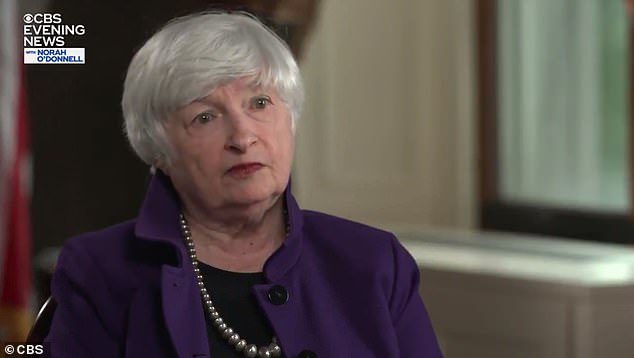Farmer and Farm Economist Michael Smith on latest proposed business policies which can impact U.S. Farming. Secretary and former Fed Chair Janet Yellen recently went on CBS in order to sell the changes to the tax code provisions that would trigger events yet unknown at the 0 level, and potentially beyond. I’ll leave this proposal up to you if it is a great idea or not. A dish washer purchase audit is probably bad tax policy, but I’ll again leave it at that. What caught my attention is what Yellen said next: “It’s the people who report ,000 in income . . . and have ,000,000 go into their bank accounts.” A corn farmer is preparing for the year. He/she needs seed, fertilizers, pesticides, and the appropriate
Topics:
run75441 considers the following as important: farm subsidies, Farmers, Michael Smith, politics, US/Global Economics
This could be interesting, too:
Robert Skidelsky writes Lord Skidelsky to ask His Majesty’s Government what is their policy with regard to the Ukraine war following the new policy of the government of the United States of America.
Joel Eissenberg writes No Invading Allies Act
Ken Melvin writes A Developed Taste
Bill Haskell writes The North American Automobile Industry Waits for Trump and the Gov. to Act
Farmer and Farm Economist Michael Smith on latest proposed business policies which can impact U.S. Farming.
Secretary and former Fed Chair Janet Yellen recently went on CBS in order to sell the changes to the tax code provisions that would trigger events yet unknown at the $600 level, and potentially beyond.
I’ll leave this proposal up to you if it is a great idea or not. A dish washer purchase audit is probably bad tax policy, but I’ll again leave it at that.
What caught my attention is what Yellen said next:
“It’s the people who report $10,000 in income . . . and have $3,000,000 go into their bank accounts.”
A corn farmer is preparing for the year. He/she needs seed, fertilizers, pesticides, and the appropriate equipment to prep, sow, harvest, and irrigate the crop. Let’s go with what Yellen said about the $3 million topline number. The farmer doesn’t have that cash up front to buy those things, the inputs and even some equipment, to plant the crop that year. They will then go to the Farm Credit System, usually a local cooperative credit office that is a part of the nationwide Farm Credit Bank, or even to the Farm Services Agency/Bureau through the USDA to get the $3 million needed. The bank then lends the farmer the money at x% interest for one year. The funds are disbursed by the bank into the farmers operating account to buy the things they need in late winter/early spring. Great! The system works as intended.
Farmer plants their corn, they tend to it through spring and summer, and then come harvest, harvest the crop and sell it to another local cooperative institution, grain elevator, or what have you, and turn a gross operating revenue of $3,145,000. Co-op gives the farmer a check for his proceeds and off he goes to the bank to cash it, or sometimes endorse it over to the Farm Bank.
Then the hard part starts. The farmer then has to pay the Farm Credit Bank back the $3 million, plus interest. Now they are holding onto $55,000 in net revenue, less any additional overhead on an EBITDA basis. You see where this is going?
Like many small businesses or construction companies, while the farmer was in possession of $3 million, the net income reported could be astronomically low in comparison. Does that now mean that every small business, including farmers would potentially have to carry the burden of an audit every year?
This sounds like half baked policy the Biden Administration is doing a terrible job in selling to the public. Farmers and small business owners rarely have large stock portfolios, options contracts, etc. I think if the purpose was for billionaires to pay their fair share, they might want to start tugging that thread instead of the disparities between revenue and income.

